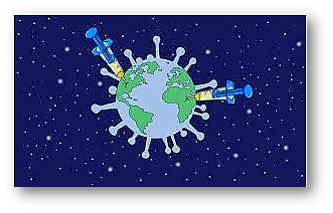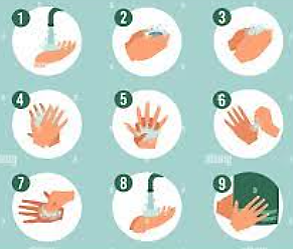SARS-CoV-2
CORONAVIRUS is the virus that causes the disease COVID-19. It is a highly infectious virus that can spread quickly and cause outbreaks, including pandemics. In early 2020, SARS-CoV-2 emerged as a novel virus and began to spread globally, leading to the ongoing COVID-19 pandemic. the covid-19 vaccine is the most important concern to least the expectation of any upcoming outbreak.
There is ongoing concern about the potential for SARS-CoV-2 to continue to spread and potentially cause future outbreaks or pandemics. Individuals and communities need to continue to take steps to prevent the spread of the virus. Such as wearing masks, practicing physical distancing, and frequently washing hands.
There are also efforts underway to develop and distribute vaccines to help control the spread of the virus. Widespread vaccination may help to reduce the risk of future outbreaks or pandemics. That was caused by SARS-CoV-2. However, it is important to continue to be vigilant and follow recommended public health measures to help prevent the spread of the virus.
COVID 19 PANDEMIC!!

The COVID-19 pandemic has had a significant impact on people’s health and well-being. As well as on economies and societies around the world. As of December 2021, the World Health Organization (WHO) has reported over 180 million confirmed cases of COVID-19. Over 4 million deaths globally. These numbers are likely an undercount, as not all cases are reported or detected.
The pandemic has had a disproportionate impact on certain groups. Including older adults, essential workers, and individuals with underlying health conditions. It has also disproportionately affected certain regions and countries, with some experiencing higher rates of infection and mortality.
pandemic
In addition to the human toll, the pandemic has had significant economic consequences. Many businesses have been forced to close or operate at reduced capacity, leading to widespread job losses and economic disruption. The International Monetary Fund (IMF) estimates that the pandemic will result in the worst economic downturn since the Great Depression. Global GDP is expected to decline by 4.4% in 2020.
Overall, the COVID-19 pandemic has had a significant and far-reaching impact. With consequences for both public health and the global economy. To help prevent the spread of the virus and mitigate its impact. Individuals and communities must continue to follow recommended public health measures.
It is difficult to definitively say which country has done the best job in managing the COVID-19 pandemic. As the spread of the virus and the effectiveness of different measures can vary significantly from one country to another.
Some countries have been more successful in controlling the spread of COVID-19. They have had lower numbers of cases and deaths. Others have been more heavily impacted by the virus. Factors that can contribute to a country’s success in managing the pandemic. Include the effectiveness of its public health measures during waves. The level of community compliance with those measures. The availability of resources such as personal protective equipment and testing supplies. Effectiveness of its healthcare system in treating patients with COVID-19.
All countries must continue to monitor the situation. Also, implement appropriate public health measures to mitigate the spread of COVID-19. And protect the health and well-being of their citizens.
UPCOMING COVID WAVE EXPECTATIONS!!!
It is difficult to predict with certainty what the future course of the COVID-19 pandemic will be. The spread of the virus is influenced by a variety of factors. That includes the actions of individuals and governments, the effectiveness of public health measures, the emergence of new variants of the virus, and other unpredictable events.
That being said, individuals and communities need to remain vigilant. Follow recommended guidelines to reduce the spread of COVID-19. This includes wearing masks, practicing physical distancing, and washing hands frequently. Getting vaccinated when a vaccine becomes available. It is also important for governments and health authorities. They have to continue monitoring the situation. Implementing appropriate public health measures to mitigate the spread of the virus.
IS COVID VACCINATION CAN PREVENT ANY UPCOMING VARIANT OF THE VIRUS??
Vaccines help reduce the spread of infectious diseases. Building immunity to a particular virus or bacteria. They work by introducing a small, harmless piece of the virus or bacteria into the body. Which triggers an immune response. The immune system then produces antibodies specific to that pathogen. That can protect against future infections with the same virus or bacteria.
The COVID-19 vaccine is currently available. It is highly effective at preventing severe illness and death from COVID-19. However, new variants of the virus could emerge that are less responsive to the current vaccines. This is not uncommon with viruses. Which can mutate over time and potentially become more resistant to the immune response triggered by a vaccine.
Scientists and public health officials must continue to monitor the spread of COVID-19. With the emergence of new variants. If a new variant emerges that is less responsive to the current vaccines. It may be necessary to develop new vaccines or booster shots to address the new variant. In the meantime, individuals must continue to follow recommended guidelines to reduce the spread of COVID-19. Including getting vaccinated when a vaccine becomes available.
WHICH SUBCONTINENT IS MORE EXPECTED TO FACE THE COVID WAVE AGAIN??
It is difficult to predict with certainty. Which specific regions or countries may be more likely to experience a resurgence of COVID-19 cases. A variety of factors influence the spread of the virus. Such as the actions of individuals and governments. The effectiveness of public health measures, the emergence of new variants of the virus, and other unpredictable events.
COVID-19 has affected many countries and regions around the world. While some countries have been more successful in controlling the spread of the virus. And have seen lower numbers of cases and deaths, while others have been more heavily impacted. All countries must continue to monitor the situation and implement appropriate public health measures. To prevent the further spread of COVID-19, regardless of their current level of transmission. By doing so, they can protect the health and well-being of their own populations and those around the world.
FUTURE STRATEGIES TO PREVENT ANY UPCOMING COVID WAVE

Several strategies can be used to help prevent the spread of COVID-19 and reduce the risk of future waves of the pandemic. These include:
Widespread vaccination: covid-19 vaccine
Additionally, getting vaccinated is one of the most effective ways to protect against COVID-19. Reducing the spread of the virus is also a focus. As more people are vaccinated. it becomes more difficult for the virus to spread. the risk of outbreaks decreases. In fact, widespread vaccination is a key strategy in controlling the spread of infectious diseases and protecting public health.
Physical distancing:
Furthermore, maintaining a distance of at least 6 feet from others can help reduce the spread of the virus, especially when combined with other measures such as wearing masks. This is because the virus is primarily spread through respiratory droplets that are produced when an infected person talks, coughs, or sneezes. By maintaining a distance from others, you can reduce the likelihood of coming into contact with these droplets and becoming infected.
Wearing masks:
Additionally, wearing a mask can help reduce the spread of COVID-19 by blocking respiratory droplets that may contain the virus. This is especially important in situations where it is not possible to maintain physical distancing, as masks can provide an extra layer of protection against the virus. Moreover, it is important to follow guidelines for wearing masks properly, such as covering the nose and mouth, securing the mask in place, and avoiding touching the mask while wearing it..
Hand hygiene: covid-19 vaccine
Furthermore, washing hands frequently with soap and water, or using an alcohol-based hand sanitizer, can help reduce the risk of transmission of the virus. This is because the virus can potentially be spread by touching surfaces or objects that have been contaminated with the virus, and then touching the mouth, nose, or eyes. By washing hands frequently and thoroughly, you can help to remove any potential viral contamination and reduce the risk of infection.
Testing and quarantine:
In addition, identifying and isolating individuals who have been in close contact with someone who has COVID-19 can help reduce the spread of the virus. Rapid and widespread testing can be an effective tool in identifying cases and preventing further transmission. By identifying and isolating individuals who are infected, we can break the chain of transmission and slow the spread of the virus.
Surveillance and monitoring:
Moreover, close monitoring of the spread of the virus and the implementation of appropriate public health measures can help control outbreaks and prevent future waves of the pandemic. This can include measures such as implementing quarantine and isolation protocols, implementing physical distancing and mask-wearing requirements, and increasing testing and contact tracing capabilities
Non-pharmaceutical interventions:
Additionally, other measures, such as closing public spaces or canceling large gatherings, can be effective in reducing the spread of the virus, especially when combined with other measures. These measures can help to reduce the number of opportunities for the virus to spread and can help to slow the spread of the virus in the community .covid-19 vaccine, covid-19 vaccine
CONCLUSION
The spread of COVID-19 and the risk of future waves of the pandemic can be reduced. It is important for guidelines and recommendations from health authorities to be followed. Specifically, those related to travel, gatherings, and public spaces. In order to help reduce the spread of the virus. By following these steps, individuals and communities can help protect the health and well-being of themselves and others, and contribute to the reduction of the spread of COVID-19..https://lifebiologs.com/impacts-of-covid-19-pandemic-waves-aftershocks/
KEYWORDS: COVID-19 vaccine, Coronavirus prevention, COVID-19 symptoms, COVID-19 testing, COVID-19 treatment, COVID-19 recovery, COVID-19 transmission, COVID-19 impact, COVID-19 statistics, COVID-19 news, COVID-19 prevention, COVID-19 vaccination, COVID-19 symptoms, COVID-19 testing, COVID-19 transmission, COVID-19 treatment, COVID-19 impacts, COVIDcovid-19 vacovid-19 vaccineccine-19 restrictions, COVID-19 guidelines, COVID-19 updatescovid-19 vaccine
REFERENCES:
- Arti, M. K., & Wilinski, A. (2022). Mathematical modeling and estimation for next wave of COVID-19 in Poland. Stochastic Environmental Research and Risk Assessment, 36(9), 2495-2501.
- Sahahjpal, N. S., Mondal, A. K., Ananth, S., Jones, K., Chaubey, A., & Kolhe, R. (2021). COVID-19 diagnostic assay sensitivity: lessons for the upcoming wave or next pandemic. Future Medicinal Chemistry, 13(20), 1713-1715.
- https://lifebiologs.com/impacts-of-covid-19-pandemic-waves-aftershocks/

